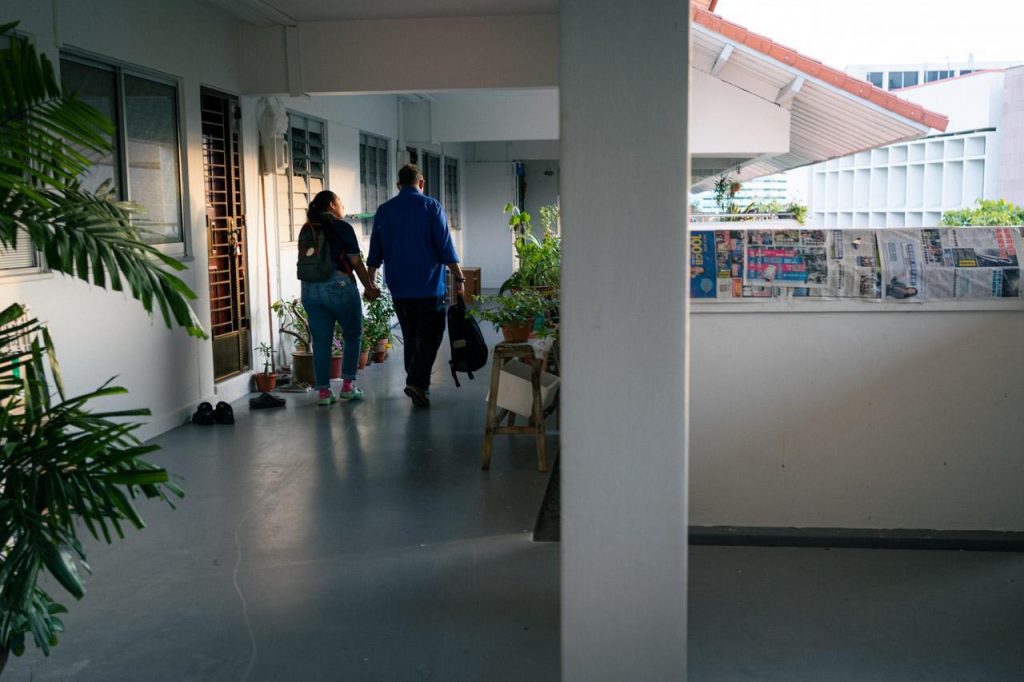Top image courtesy of PPIS.
This story is part of RICE Media’s Storytellers partnership with the Singapore Muslim Women’s Association, or PPIS (Persatuan Pemudi Islam Singapura).
PPIS SYM Academy presents a story about family therapy in Singapore. Produced by Mohamad Raihan Lakariah.
The signs weren’t there at all.
By all accounts, *Danial has a great relationship with his wife. After five years of marriage, they’ve established a solid family foundation with two kids and a cosy home. They’ve had no history of spousal abuse or major arguments with each other.
By all accounts, they really do love each other.
The loving household they’ve built, however, stands at the precipice of sudden collapse. As untroubled marriages go, *Danial’s story doesn’t fit the bill for why he struck an affair.
It’s in cases like these that make people wonder: is there ever a sure telltale sign of infidelity?
Because even in happy marriages, the likelihood of straying remains high among couples in Singapore.
‘Justifying’ adultery
*Danial, 40, thrives as a property agent—he’s sociable, he’s extroverted, and he makes friends easily. In his line of work, he tends to meet a wide range of people.
No issues with that until he met *Kat. As someone in the same industry with a lot of connections with clients, she became a key contact. As time went by, they got closer, and *Danial started seeing her more often, especially after work.
“I did not think much about my own marriage. As long as no one knows, it should be safe, I thought,” *Danial recalls.
“My wife didn’t have to know. At the time, I thought it was quite common for someone to have a fling or a scandal.”
*Danial believed things would be okay if he continued carrying out responsibilities at home—he paid the bills, bought the groceries, and provided for his family.
“It’s not like I’m neglecting my own family; I still love my wife, but I enjoy going out with *Kat too,” he reasoned to himself back then.

Most cheating spouses might justify infidelity with rationalisations like feeling unfulfilled in their marriage, seeking emotional or physical needs that they perceive as unmet, or believing that the affair won’t negatively impact their primary relationship.
Adultery remains among the top reasons behind divorces, along with communication breakdown, financial issues and spousal violence. But even after infidelity, divorces might not happen because spouses are satisfied with other aspects of the marriage, such as how the one who cheated remains a responsible breadwinner.
In some cases—like *Danial and his wife—extramarital affairs might not even be detected until it is too late.
The thought of a secret affair did not even cross the mind of *Danial’s wife, *Rose. She simply noticed that her husband had become more quiet and started returning home late from work more often than usual.
“When I asked him where he had been, he’d just say overtime, or he had to attend meetings that ended late. If I probed him further, he would burst into anger. I just let him be and did not think much about the matter.”
It was only when she sought counselling and expert opinion at PPIS Sym Academy that she learned the truth. A therapist suggested that she should look for proof if she suspects infidelity.
“True enough, I found out that he had been seeing a female friend behind my back. My heart shattered into a million pieces. The first question that came to my mind was, ‘Am I not good enough as a wife?’”
Though she had initial considerations of getting a divorce, *Rose told herself to think straight instead of “acting on pure emotions”.
The solution she found was getting her husband to attend couples counselling sessions.
“I mean… he is my husband. And I want to be able to trust him again.”

Family Feud
PPIS counsellors will establish ground rules before working with couples in their reconciliation journey.
First, the affair or relationship with the third party must have ended. Second, conversations about therapy should only be limited to extended family members.
Third—and probably the most important one—therapy is hard work that requires some room for expected uncertainty.
“Couples seeking help need to focus on being present in the present as the cheating spouse tends to want to move on quickly—they’d want their spouse to forgive and forget fast,” a counsellor shares.
The victim, on the other hand, wants to know all the answers to their questions. This includes all the details about the infidelity. Further hurt ensues when the cheating spouse dismisses such details as “unnecessary”.
To be fair, the reasons behind cheating during marriage are complex. There are various reasons why people cheat, and counsellors shared that it is made even more complicated when some people would rather not disclose reasons why, due to it being very personal or shameful.
Oftentimes, we think that infidelity happens in unhappy marriages. Experts, on the other hand, say that 56 percent of men and 34 percent of women involved in affairs reported that their marriages were indeed happy.

“A spouse experiencing overwhelming tension and anxiety in his marriage may find a third party as a form of relief or a distraction from their problems,” a counsellor offers.
“For such cases, there could already be pre-existing issues in the marriage which caused one party to find happiness elsewhere.”
Other times, affairs happen because of novelty—a desire for something forbidden. It applies to cases like *Danial, whose desire to feel special and seen kept him in the affair.
Missing Pieces
Though *Danial acknowledges that his affair was a mistake on his part, the man has his own reasons. But he asserts that his wife was not at fault.
Despite “some shortcomings”, *Rose is a good wife, *Danial says. But he felt the emotional disconnection nudged him to look for attention elsewhere.
“Sometimes *Rose tends to pay too much attention to her work and the children,” he says.
“Attending counselling helped me to be more grounded in terms of thinking about my own marriage goals and to open up about my own unmet needs in our partnership.”
According to PPIS counsellors, the goal for couples undergoing therapy together is to rebuild that trust between each other—even though it might not be 100 percent anymore.
“The idea is to negotiate a percentage that is comfortable for both parties,” a counsellor says.
Because it’s an ongoing process, part of trust-building is to create space for errors and mistakes to happen. Both parties want a way to move forward with their lives.
Fortunately for *Danial, *Rose has forgiven him for his marital indiscretion and wants to recover from this dark episode.

In the context of Singaporean families, the fast-paced (and often demanding) lifestyle can create an imbalance between married couples. In a partnership of equals—where both spouses share household responsibilities—there could be a divergence in goals, especially when both struggle to find a sustainable equilibrium between work, personal life and family commitments.
Now, more than ever in this uncertain economic climate, it necessitates a stronger emphasis on open communication and support for one another.
Every couple, happy household or not, will go through ups and downs. The key lies in embracing these fluctuations as stepping stones towards a more profound and fulfilling connection.
*Names have been changed.






